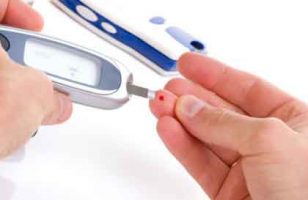- Home
- Editorial
- News
- Practice Guidelines
- Anesthesiology Guidelines
- Cancer Guidelines
- Cardiac Sciences Guidelines
- Critical Care Guidelines
- Dentistry Guidelines
- Dermatology Guidelines
- Diabetes and Endo Guidelines
- Diagnostics Guidelines
- ENT Guidelines
- Featured Practice Guidelines
- Gastroenterology Guidelines
- Geriatrics Guidelines
- Medicine Guidelines
- Nephrology Guidelines
- Neurosciences Guidelines
- Obs and Gynae Guidelines
- Ophthalmology Guidelines
- Orthopaedics Guidelines
- Paediatrics Guidelines
- Psychiatry Guidelines
- Pulmonology Guidelines
- Radiology Guidelines
- Surgery Guidelines
- Urology Guidelines
Diabetes Increases Risk of postoperative cognitive dysfunction in Seniors

Older patients with diabetes may be at an 84 percent higher risk of developing postoperative cognitive dysfunction (POCD) than those who are not diabetic, suggests new research presented at the ANESTHESIOLOGY 2017 annual meeting.
“With POCD, a patient’s mental ability declines after surgery, compared to their cognitive performance before surgery, resulting not only in increased complications and potential death but also impairing the patient’s quality of life,” said Gunnar Lachmann, M.D., Department of Anesthesiology and Operative Intensive Care Medicine, Charité – Universitätsmedizin Berlin, in Germany. “POCD is increasingly recognized as a common complication after major surgery, affecting 10 to 13 percent of patients, with seniors being especially vulnerable.”
POCD is a major form of cognitive disturbance that can occur after anesthesia and surgery, but little is known about its potential risk factors. An association between diabetes and age-related cognitive impairment is well established, but the role diabetes has in the development of POCD is unknown.
In the study, researchers performed a secondary analysis of three studies, comprising a total of 1,034 patients (481 who had cardiac surgery, and 553 who had non-cardiac surgery), to examine whether diabetes was a risk factor for POCD. The mean age of the patients studied was 66.4 years. Of the 1,034 patients studied, 18.6 percent had diabetes. The association of diabetes with risk of POCD was determined using logistic regression models at the longest patient follow-up period for each study, which was 3 or 12 months. Risk estimates were pooled across all three studies.
After adjusting for age, sex, surgery type, randomization, obesity and hypertension, the researchers determined diabetes was associated with an 84 percent higher risk of POCD. Patients age 65 or older were at particularly high risk.
“Our findings suggest that consideration of diabetes status may be helpful for the assessment of POCD risk among patients undergoing surgery,” said Dr. Lachmann. “Further studies are warranted to examine the potential mechanisms of this association, to ultimately help in the development of potential strategies for prevention.”
In 2015, the American Society of Anesthesiologists (ASA) launched a new patient safety initiative — the Brain Health Initiative — to arm physician anesthesiologists and other clinicians involved in perioperative care, as well as patients and their families caring for older surgical patients, with the tools and resources necessary to optimize the cognitive recovery and perioperative experience for adults 65 years and older undergoing surgery.
Learn more at asahq.org/brainhealthinitiative.

Disclaimer: This site is primarily intended for healthcare professionals. Any content/information on this website does not replace the advice of medical and/or health professionals and should not be construed as medical/diagnostic advice/endorsement or prescription. Use of this site is subject to our terms of use, privacy policy, advertisement policy. © 2020 Minerva Medical Treatment Pvt Ltd